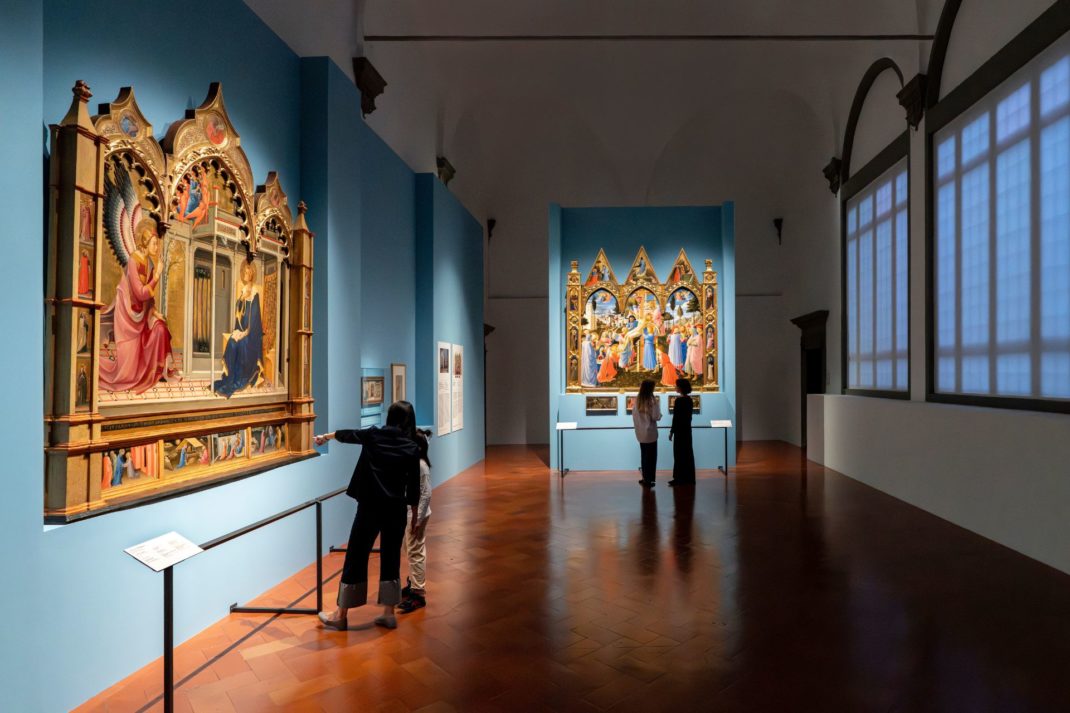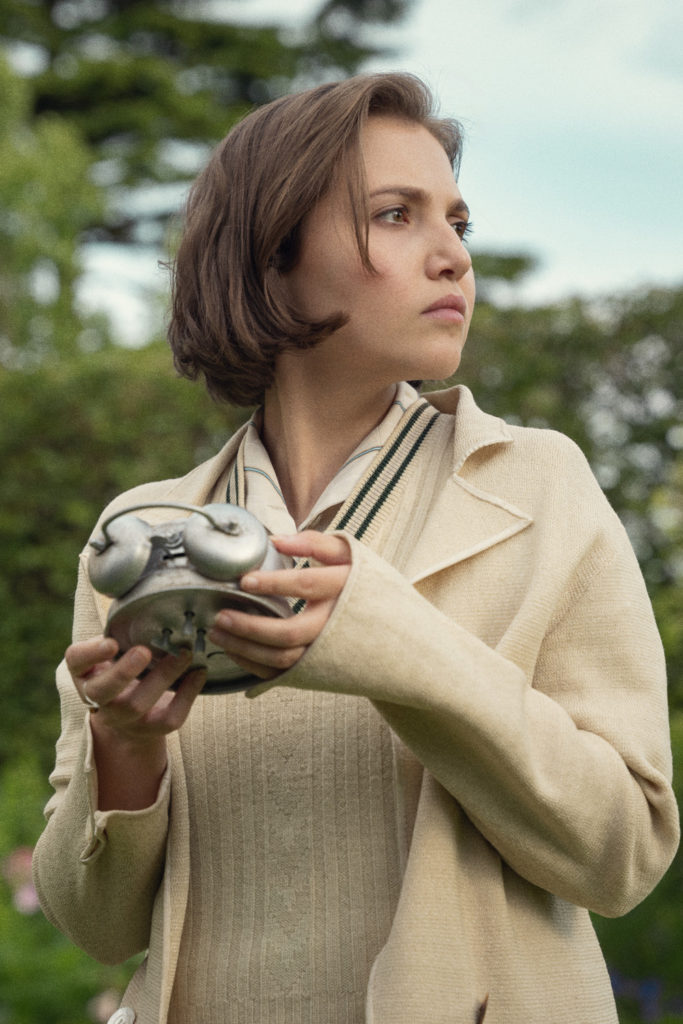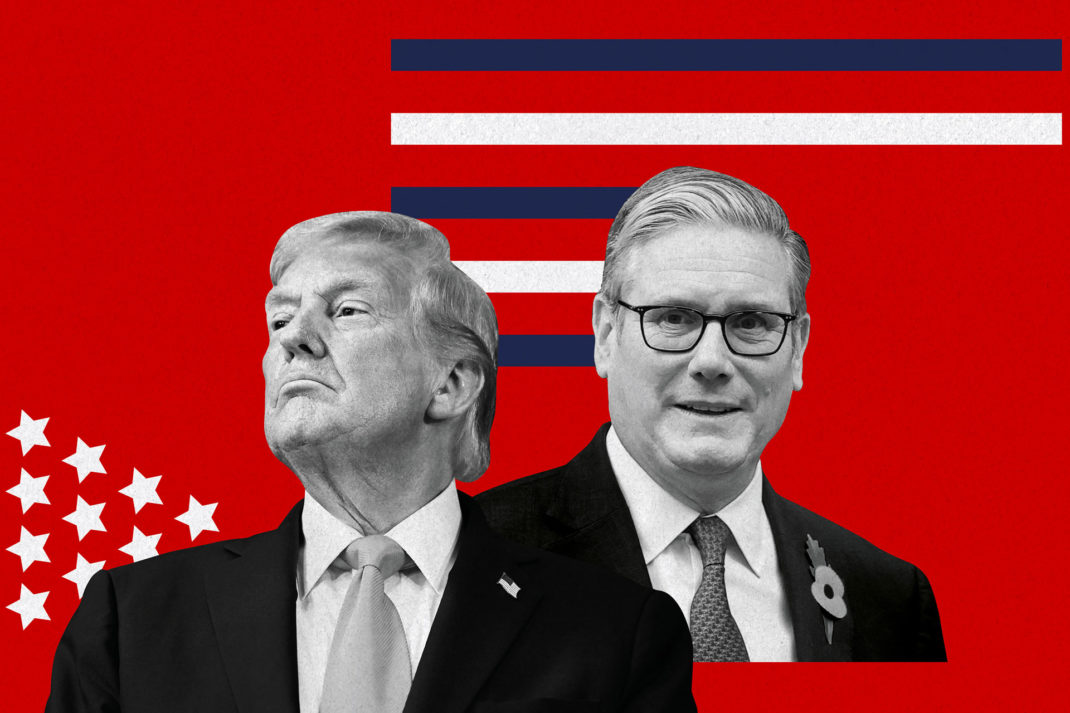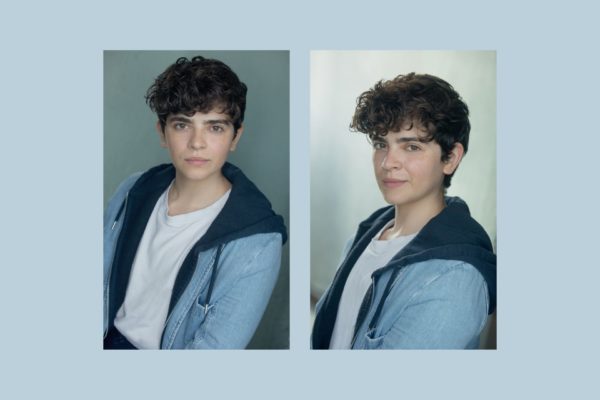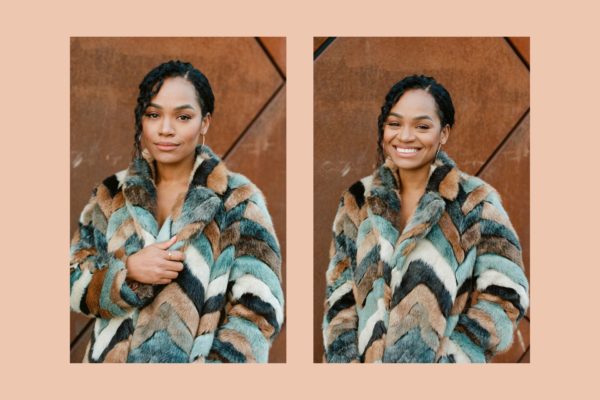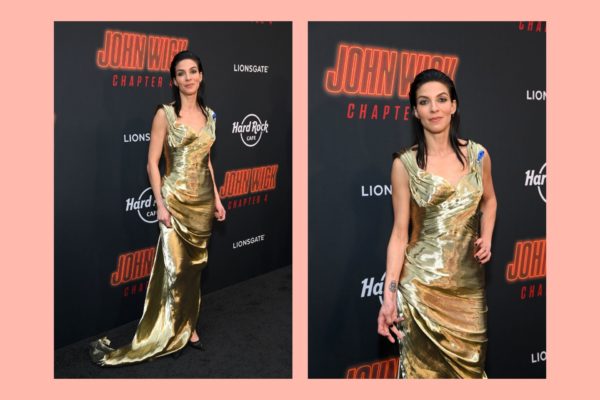‘You couldn’t have created a more timely series’: Niamh Algar On Starring In Malpractice On ITV1
By
3 years ago
Malpractice stars this Sunday at 9pm on ITV1
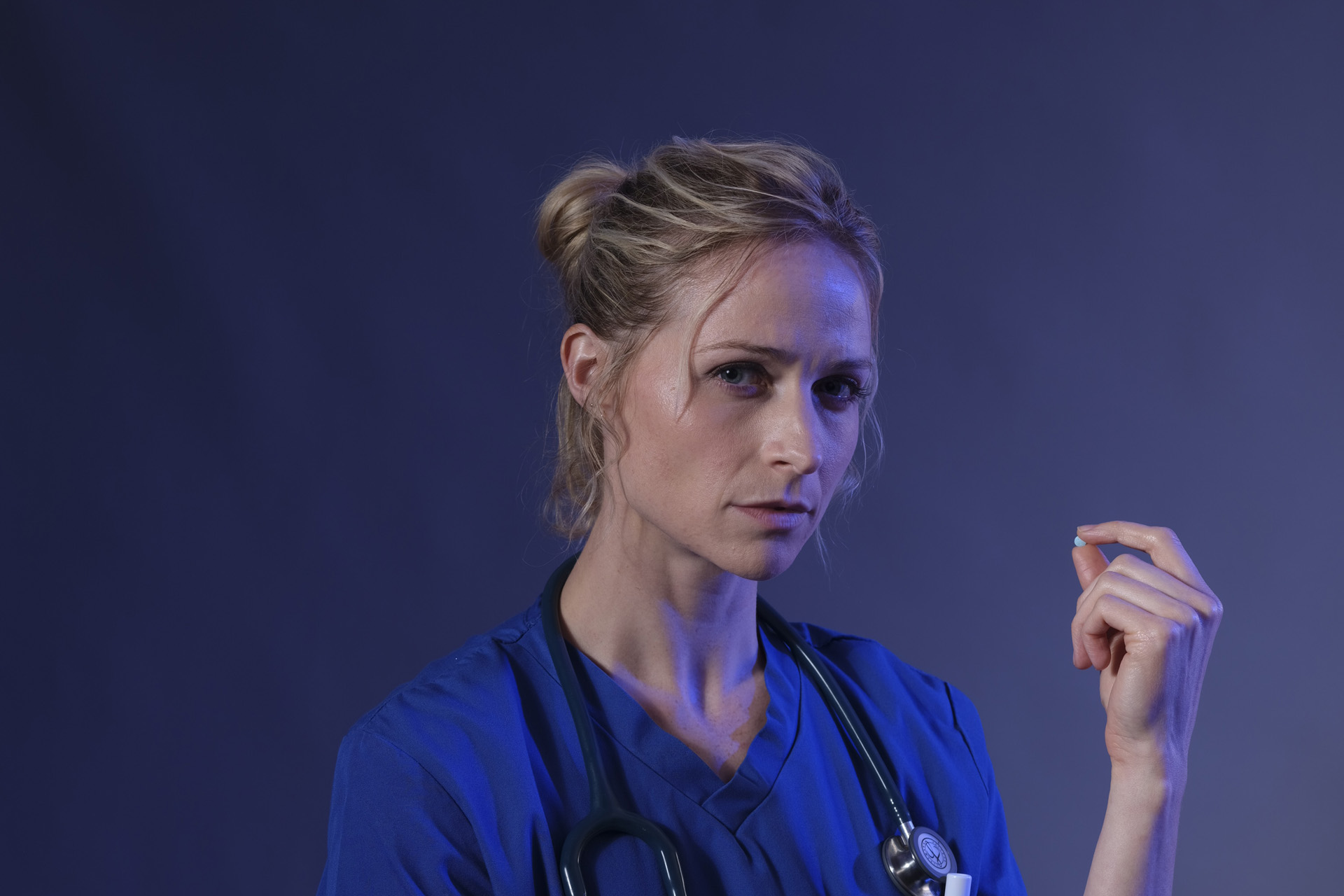
Coming this Sunday at 9pm on ITV1, Malpractice is a new, five-part medical thriller with Niamh Algar at the helm. We sat down with Niamh to talk about preparing for the role, filming such a high-pressure series, starring in The Wonder and longing to work on a Western.
Interview: Niamh Algar On Starring In Malpractice On ITV1
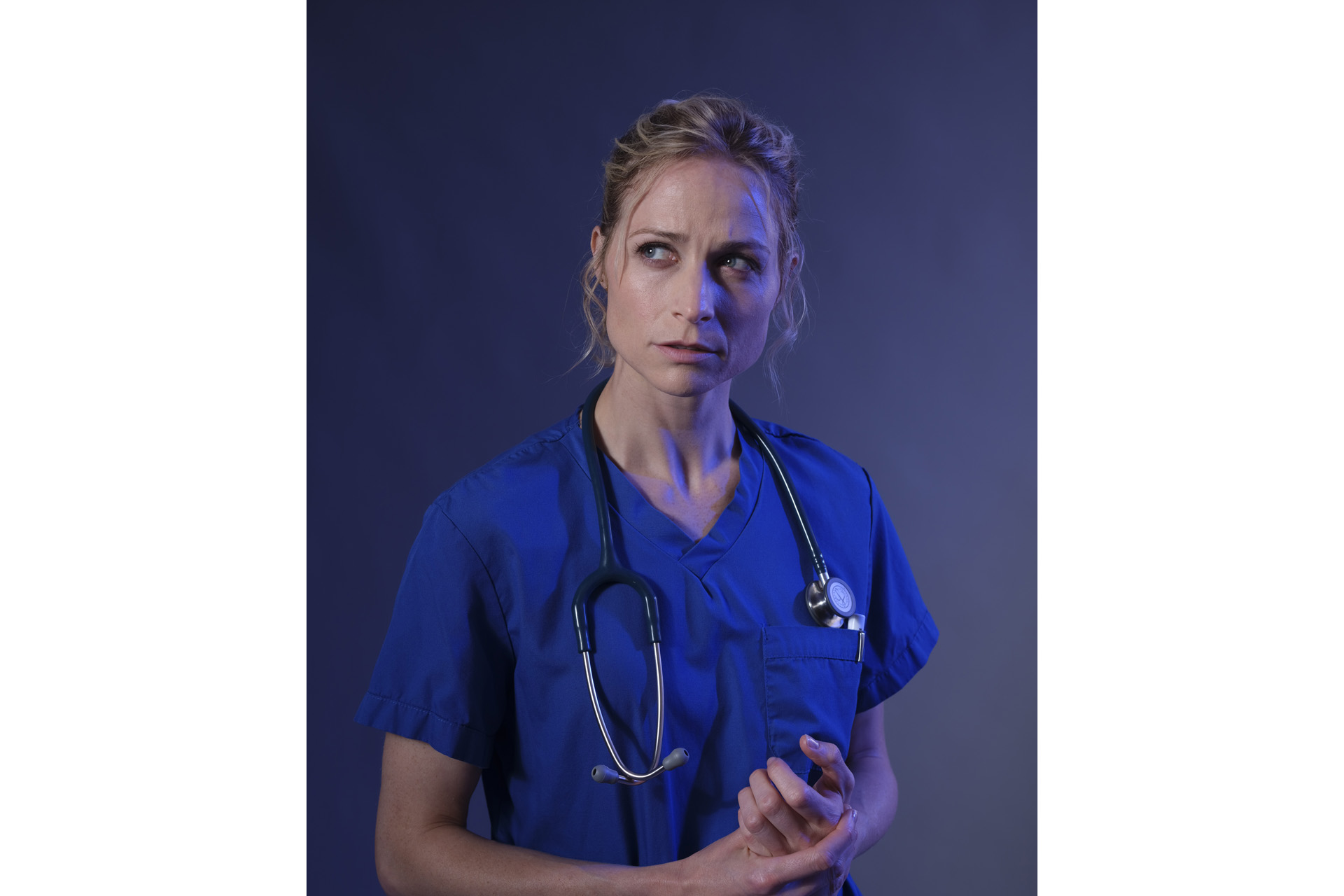
Niamh Algar in ITV’s Malpractice
Hi Niamh! How’s life going at the moment?
Life is lovely at the moment. I’m working with one of my all time heroes, Julianne Moore, on a period drama directed by Oliver Hermanus. I saw Moffie, his feature film, a few years ago and I was just blown away by that, and I was really keen to work with him. And then the series came along! And I was like, ‘Yes, I need to do this.’ I’m really excited for Malpractice, too, because it’s a project that I’ve been so passionate about for the last year, since I was asked to come on board. I’m so excited that it’s finally coming out for audiences to see.
On Malpractice: can you give our readers an elevator pitch in case anyone is unfamiliar?
Malpractice is a medical thriller, brought to you by the same team that created Line of Duty, Bodyguard, Vigil – so anticipate a high intensity, adrenaline fueled, medical thrill ride. The backdrop is A&E, where a doctor called Lucinda Edwards is in charge of her team one night when a young lady comes in with an overdose. But, at the same time, a gunman bursts into the lobby with his mate who’s been shot and badly injured. So Lucinda is in an incredibly difficult position where she has to choose which patient she’s going to be taking care of. Her next senior in line, Rania, looks after the overdose patient, and Lucinda gives her specific direction, which then ends in the death of this young overdose patient. So a medical inquiry is opened up and you have this tense cat and mouse chase of how that night came about and what led to it.
It’s a really exciting show. For me, I was acting in something that I was so excited to read and be a part of. It’s so engaging. It’s written by a former A&E doctor who has 10 years of NHS experience, so it also comes from a very grounding place of truth. A lot of what you see in the A&E, Grace [Ofori-Attah, the series’ writer] experienced, so that was such a huge draw. You get a very real sense of what it’s like to be in that world. But for an elevator pitch: Safdie Brothers, but razor sharp.
You play the lead, Dr Lucinda Edwards – can you tell us about her?
Yes – she’s a junior A&E doctor on the cusp of getting her consultancy. She’s a really good doctor. She is smart. She’s confident. She’s battle hardened – someone who goes to war every day, and has to go on to this battlefield where you don’t know what’s going to come through the door. You don’t what the next patient is going to be. You don’t know how extreme their condition is going to be. And you have to make these incredibly quick and life changing decisions – because that’s your job as a doctor, you’re there to save lives. And you have to do it in the quickest amount of time possible, in an environment where all of those factors are being stacked against you. I think Grace, the writer of it, described it as, ‘she has been kicked in the leg before a race, and then has been asked why she didn’t win the race at the end’.
You couldn’t have created a more timely series, with the doctors and nurses striking, looking for better pay and better working conditions. I think people will relate to Lucinda, in some form. It was really interesting having an audience’s reaction after the screening – I definitely think it divides people, wondering if they’re on Lucinda’s side or not. That was a really interesting character to play, because it challenges the narrative and creates a difficult conversation that I feel like needs to be had: why you feel like you relate to her, or why you feel like you don’t.
How does it feel to be playing the lead?
It’s such an exciting role to take on. And Phil [Barantini] is such a kind and caring director – he’s an actor as well as a director, so he understands what actors put themselves through in order to understand their character. I think it was really wonderful having someone like Phil working with us on this because you’re really throwing yourselves into quite a dark headspace for the character. For the first 10 minutes of the series, you see someone who feels – and who on paper is – responsible for someone’s death. That, for me, was an incredible starting off point. Like, how would that feel? To feel like you are responsible for someone else’s death when it could have been avoided? And, if you’re not responsible, how does that also make you feel? And how do you brush that off in order to continue working? It was also great to be surrounded by a medical team of advisors on the show who were so willing to educate you on what that procedure would look like, what it would entail and how emotionally that might affect you. It was an incredibly insightful way of learning about the challenges you would face as an A&E doctor.
Did you have to prepare or learn any skills in the run up to filming?
Yeah! I shadowed an A&E consultant on a ward, visually seeing what an A&E department looks like. I found it fascinating – the hospital in Malpractice is a fictional hospital that we’ve created, but when I was shadowing, I could see what I was reading on the script. I could see the dynamics, I could see the duty of care they have with one another as an A&E unit, and how they have to look after one another. They are the glue that is literally holding it all together; without them, there is no A&E. I also got myself a suturing kit, because there are parts of it where the character is stitching and suturing up injuries.
I only had about a week to prep for Lucinda as I was coming off another job. It was quite an intensive week, talking to as many doctors as I could. I sat down with an ambulance paramedic, and he was teaching me the basic line of defense – how you would assess a patient if they were coming to you and you didn’t know what was wrong with them. So much of the profession informs the character with Lucinda, so learning about those decision makers and the environment was really fascinating.
What was that like to film?
There was so much fun in being able to succeed in carrying out the procedures. There’s an emergency thoracotomy, which on the page sounded so complex – and it is incredibly complex. You have to understand what that procedure looks like, and how extraordinary it would be carry that out within an A&E environment. The art departments and prosthetics created this amazing prosthetic bodice of someone’s chest, that essentially exposes open the ribs, and then you cut through the intercostal muscles, and then, as you pull that out, you expose the lungs and the heart. So that was all working as a solid constructed piece, and we had about two of them. We rehearsed the dialogue, we rehearsed the performance, but nothing can compare to when they call action, and you’ve got a scalpel and this is a very expensive prosthetic and a very long reset. It only added to the fact that your hand is shaking, because you are so nervous that you’re gonna mess this up. But then when you look back at the footage, you’re able to feel the vibe in the room. Phil said, ‘if you accidentally cut over her lines, or if you bump into him, that’s all real. That’s the point. We want this to feel real.’ So, you know, that tension was great – that added pressure of knowing we can’t do this 10 times – we get two goes at this. It adds to the performance, because it needs to feel palpable and the audience needs to believe this is an extraordinary situation to be in.
What was the vibe like on set, filming such a high-pressure show?
I was in every day filming, and when I was finished filming something and there was a break between a couple of scenes, I would then go to a different part of the set of the hospital to learn how to carry out a lumbar procedure, for example – learning what that would look like from the medical team. We had very little time, but any time we did have we utilised it to the best ability. It made the experience more exciting because you’re like, ‘right, I’ve got I’ve got an hour to try and learn this as quickly as possible before I have to rush back’. When I was shadowing that A&E consultant, she didn’t have a spare five minutes – there was no moment of ease – so I could completely apply that feeling of being overwhelmed while maintaining a strong, confident level-headedness that would come with being in charge of someone’s life. So it definitely benefited the performance.
We did also have a lot of fun on set – I’m not taking away from that. There were a lot of laughs. Hannah Walters would have everyone in stitches laughing.
You recently starred in The Wonder alongside Florence Pugh – what was that like?
That was a really wonderful experience, if you’ll excuse the pun. Especially as a story dealing with a part of Irish history that I feel like is forgotten about a lot of the time. It takes place just after the famine, and a lot of those stories are quite unseen. I thought this was a really interesting perspective, especially with an English nurse who’s coming all the way to Ireland to look after this fasting girl. I had never heard of these fasting girls. These were real girls that were seen in communities as being kind of spiritually touched, with some connection to God. And I thought that that was a really fascinating story to bring.
Florence Pugh is a superstar – she’s someone I was dying to work with. To me, she’s one of our generation’s greatest actors. I learned so much from being on that set, but I also learned so much from her. She’s a close friend still, and she’s just really such a lovely, kind, and incredibly hardworking human. And Sebastián Lelio [who directed The Wonder] is a director I was a huge fan of, so for me it was a fantastic project to be part of. I had so much fun playing that role, and getting to break the fourth wall!
And you’ve got lots of exciting things coming up, including Culprits on Disney+ and Mary & George with its star studded cast – can you tell us about the latter?
Well, you’ve got Julianne Moore helming the project. She is a hero of mine. I think Still Alice is just one of those performances. She won the Oscar for it, and her career path has been a huge influence on me as an actor. This story is based on historical facts: these socialites who climbed their way up from humble beginnings to being next to the king basically – working their way into the palace. Oliver Hermanus, who directed Living, is directing the series. It’s a psychodrama. It’s got all of the incredible ingredients that you have with historical British history. It’s hard to describe! We’re filming in locations that are period correct – like, to 1612. That’s quite incredible, that we have these still existing stately homes that you’re able to go in and perform in, playing the characters from that time. It’s really special. I keep on having this very much out of body experience where you’re dressed in these big corsets and bum rolls and all of this, and you’re walking around. It shortens the relatability, I suppose, of wondering what it would be like to walk around in someone else’s shoes. But then when you’re doing it, it’s like,’ wow, how did they withstand these corsets all day?’ That’s what I want to know.
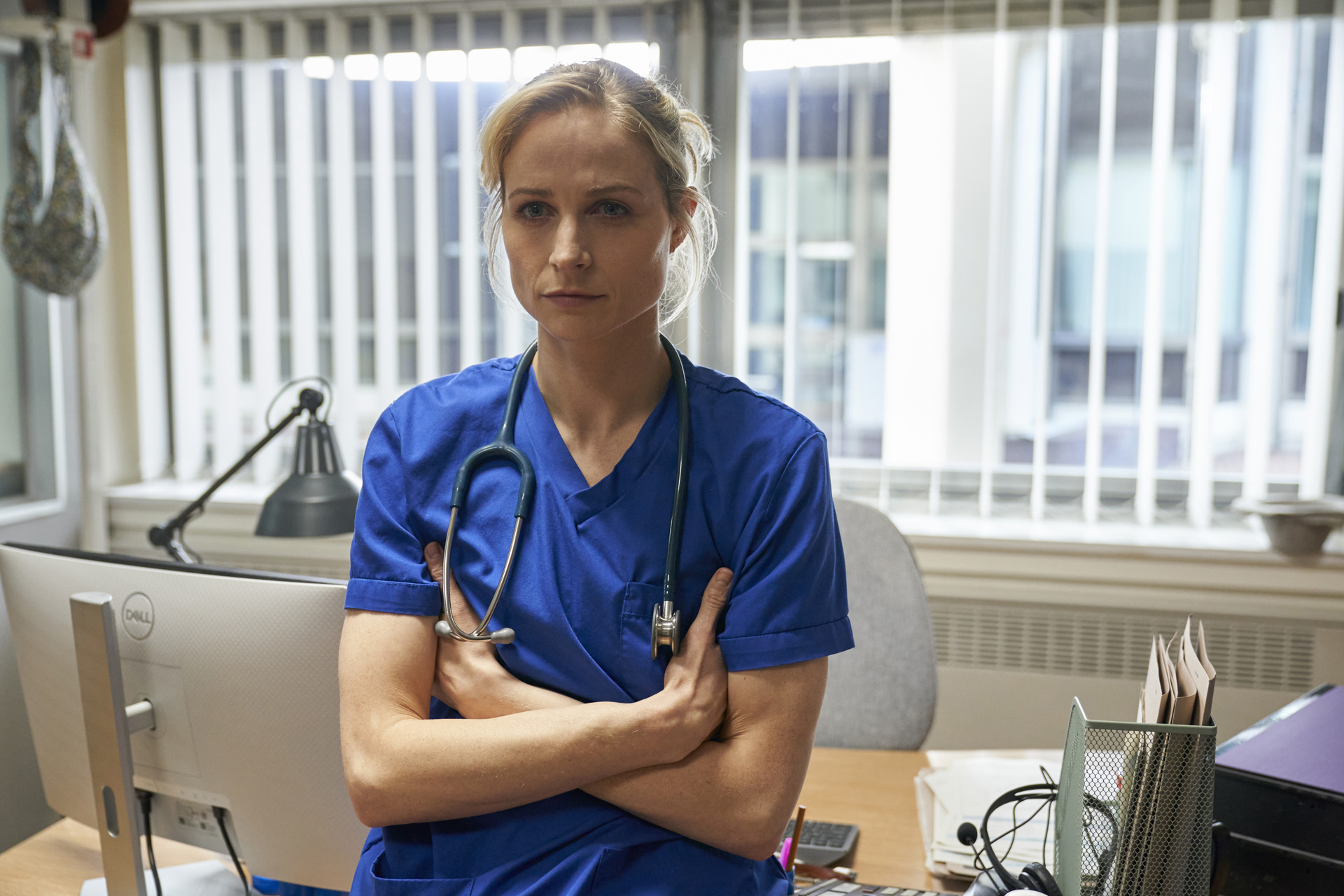
Niamh Algar in ITV’s Malpractice
Which upcoming project are you most excited to share?
Malpractice, honestly! I’ve been so passionate about this story since it landed in my inbox like a year ago. I think it’s come at such a timely moment. It’s more timely now than when we shot it. And I think that is down to Grace having worked as a doctor within the NHS, and understanding the pressures, but also understanding that this should be a topic of conversation. We should be talking more about this. The way in which she formulated this medical thriller with the A&E just being the backdrop is amazing. Everyone that I got a chance to work with was just so inspiring. And they really went above and beyond what was being asked of them. I’m so proud of it. I can’t wait for audiences to see it and hopefully connect to it in some way.
Flipping that around, what role would you like to do next? Or something you’ve not done yet that you’d love to do?
I would love to do a Western! I’m always fascinated. There’s also such a simplicity, I think, to Westerns. I grew up on horses. That’s what I used to do after school – I would go to my auntie’s house and ride horses. Also maybe a comedy? Maybe a little rom com. But I think that’s what’s exciting about this industry, is that the conversations keep on changing and themes, too, and people keep on challenging the narrative, which is exciting. It keeps audiences on their toes, but it definitely keeps actors on their toes, and with that you’re coming into everything very much with an open mind, and open heart.
What about a role you don’t want to do?
For me, I have to find something that you can relate to and find truthful. So maybe just when it feels so far removed from reality that it becomes tiresome.
Who has been your favourite actor to work with in the past?
One of my first projects was MotherFatherSon, and I got to work with Helen McCrory. She was such a generous human and actor. I remember it was my second day, and I had a scene where my character had to break down and plead with Helen’s character to let me be with her son in the narrative. I was getting so nervous, and I said to her, ‘I’m afraid I’m not gonna be able to cry and break down’. And she was just like, ‘then don’t. That’s fine. Just make sure that whatever you’re feeling is true’. And then the director called action, and it was just me and her sitting on the step, and was just balling crying. She just held my hand, and she delivered her first line, and then I just completely got lost in what it is that she was doing. It almost takes the pressure off you. I remember thinking, coming away from there, that was possibly one of the nicest things an actor has ever done. Making you feel safe – just safe to be able to perform. When you come with so much experience like she did on that project – she was incredible, every actor would have thrown themselves to be in a scene with her – I think that she understood the pressures when you feel like you didn’t come up to the mark, and helped you get there. I’ll always remember that moment. How she made me feel. It was such a lovely experience.
Amongst these amazing projects, do you get to spend much time at home?
No, I don’t. [laughs] I’ve always been nomadic, since I was probably about 16. This lifestyle and job fits in well with me and my personality and my own lifestyle. But yeah, it just means that when you do get to go home and see your family that you cherish it and really make the most of it, because you don’t know when you’ll next see them. When I shot Raised By Wolves season two, it was still within the COVID lockdown, so when we flew out there, we were essentially going out there for six or seven months and knowing that we weren’t going to be able to leave. So when you do get home, you just appreciate the time you can spend with someone. When I’m not working, I’m just visiting friends or visiting family. Which is great – it’s kind of like my pastime.
Do you prefer the town or the country?
It’s definitely a mix of both. I grew up in the countryside, but I always feel like my personality is better suited to a busy city. I love London – that’s where I live and work. I just feel like if you’re bored in London, you’re a boring person. Because you can’t get bored! Move into a different borough, or just go for a walk, and it’s the most visually stimulating city in the world. But then, I love when you retreat to the countryside. At the moment, we’re filming on the outskirts of London, so you get to see big green spaces and animals. So it makes you appreciate the space when you do get it. I think it’s always going to be a dichotomy of both that I have an appreciation for.
How do you find balance in your personal and work lives?
I go for walks. There’s so many incredible parks around where I live. I think it’s really important to try and see as much nature as you can during the day because so much of life now is on screens. It’s important to be able to switch off and go out into the air. I have also suddenly gotten into pottery – I’m big into pottery right now. Ceramics. It’s something I always wanted to do and never found time for, and then my friend Tony was like, ‘Hey, do you want to go to this pottery, ceramic, mug building class?’ And I was like, ‘Yeah, I’ll go do that!’. It reminded me of being a kid and having an art class where you’ve got two hours to just build something, anything, if you want, and there’s nothing to lose. It’s very simple. But yeah, that and catching up with friends and going for walks. I really wanted to get a dog, but I don’t think life is going to allow me at the moment.
How can we all live a little bit better?
Be kinder to yourself. Because I think if you’re kind to yourself, you’re going to be kind to others. Treat yourself like you want others to treat you and I think that will rub off. Look after yourself, look after your mental health, and it will take potentially take the pressure off others.
Quick Fire
I’m tuning into… Succession and The Last of Us
What I’m reading… The Body Keeps the Score by Bessel van der Kolk
The last thing I watched was… Cate Blanchett in Tar
What I’m most looking forward to seeing… Barbie
Favourite film of all time… Woman Under the Influence
Singer I always have on repeat… P!nk
My ultimate cultural recommendation… Go to the National Portrait Gallery and have a look around!
What’s next for me is… I’m working with Charlotte Rampling on a film called Maureen.
The first episode of Malpractice will air this Sunday (23 April) at 9pm on ITV1. Catch up on ITVX.
Images courtesy of ITV.

